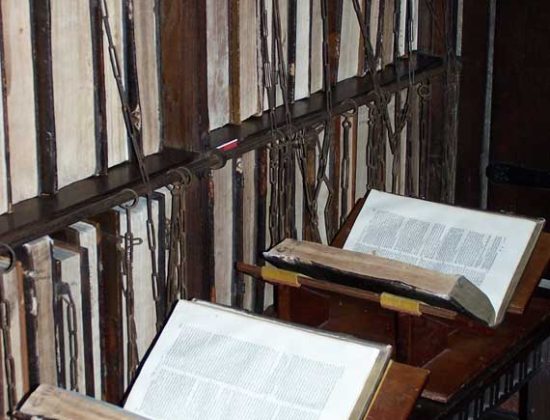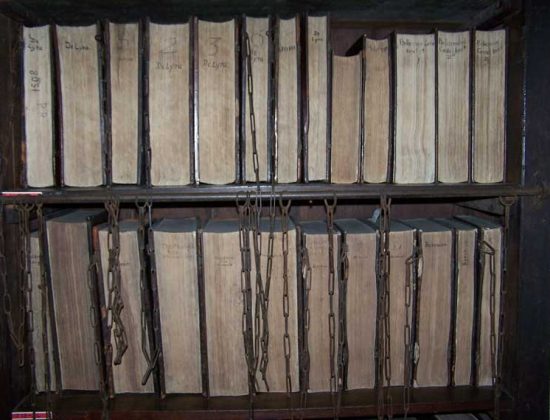The Trigge Library in Grantham, housed above the south porch of St Wulfram’s Church, is widely acknowledged as England’s first public reference library. It was founded in 1598 by Francis Trigge, rector of Welbourn and Alderman of Grantham, who donated £100 to assemble a collection of books accessible not only to clergy but also to local residents and scholars. It was intentionally placed in the parvises room, once the medieval vicar’s living quarters, complete with a fireplace, oriel window, and lavabo.
The library contains approximately 356 volumes today, many printed in the 16th century, including rare incunabula from Venice dating back to 1472. Around 80 of these books remain chained to wrought iron rods and shelves to deter theft, making the collection one of the few surviving chained libraries in the world. The subjects span theology, natural history, scripture, classic texts, law, medicine, and early encyclopaedias. Among the most notable works are Conrad Gessner’s richly illustrated Historia Animalium (1551–58) and a copy of Imago Mundi (1410), revered by navigators and linked to Christopher Columbus’s own studies. The collection also includes a 1613 King James Bible, likely a second printing of the first edition.
Visitors can reach the library by climbing a narrow spiral staircase up to its historic chamber, which still retains much of its original 14thcentury layout. Access is limited but typically available during the months from April through September, on certain weekdays and Saturdays, overseen by volunteers from St Wulfram’s. Occasionally the library hosts special events such as symposium days with expert talks on its founding, conservation of rare volumes, and the historical context of the collection.
As a treasured landmark in Grantham’s heritage, the Trigge Library provides a unique glimpse into Elizabethan philanthropy and early printed knowledge. It’s rare and beautifully preserved volumes, medieval environment, and continued use as an educational resource make it a fascinating destination for anyone interested in history, books, and the inheritance of learning.
Photos courtesy of Discover St Wulfram’s.




